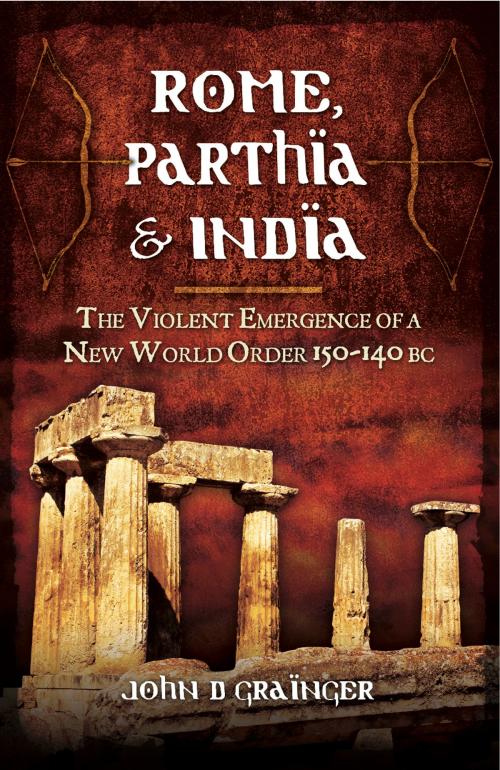Rome, Parthia and India
The Violent Emergence of a New World Order 150-140 BC
Nonfiction, History, Ancient History| Author: | John D. Grainger | ISBN: | 9781473830134 |
| Publisher: | Pen and Sword | Publication: | October 8, 2013 |
| Imprint: | Praetorian Press | Language: | English |
| Author: | John D. Grainger |
| ISBN: | 9781473830134 |
| Publisher: | Pen and Sword |
| Publication: | October 8, 2013 |
| Imprint: | Praetorian Press |
| Language: | English |
Between 152 and 138 BC a series of wars from Africa to India produced a radically new geopolitical situation. In 150 Rome was confined to the western Mediterranean, and the largest state was the Seleukid empire. By 140 Rome had spread to the borders of Asia Minor and the Seleukid empire was confined to Syria. The new great power in the Middle East was Parthia, stretching from Babylonia to Baktria. These two divided the western world between them until the Arab conquests in the seventh century AD. These wars have generally been treated separately, but they were connected. The crisis began in Syria with the arrival of the pretender Alexander Balas; his example was copied by Andriskos in Macedon, formerly in Seleukid service; the reaction of Rome to defiance in Macedon, Greece and Africa produced conquest and destruction. The preoccupation of Seleukid kings with holding on to their thrones allowed Mithradates I of Parthia to conquer Iran and Babylonia, and in Judaea an insurrection was partly successful. Mithradates was able conquer in part because his other enemy, Baktria, was preoccupied with the nomad invasions which led to the destruction of Ai Khanum. One of the reasons for the nomad success in Baktria was the siphoning off of Greek strength into India, where a major expedition in these very years breifly conquered and sacked the old Indian imperial capital of Pataliputra. In the process the great cities of Carthage, Corinth, Ai Khanum, and Pataliputra were destroyed, while Antioch and Seleukeia-on-the-Tigris were extensively damaged. John Grainger's lucid narrative shows how these seismic events, stretching from India to the Western Meditteranean, interconnected to recast the ancient world.
Between 152 and 138 BC a series of wars from Africa to India produced a radically new geopolitical situation. In 150 Rome was confined to the western Mediterranean, and the largest state was the Seleukid empire. By 140 Rome had spread to the borders of Asia Minor and the Seleukid empire was confined to Syria. The new great power in the Middle East was Parthia, stretching from Babylonia to Baktria. These two divided the western world between them until the Arab conquests in the seventh century AD. These wars have generally been treated separately, but they were connected. The crisis began in Syria with the arrival of the pretender Alexander Balas; his example was copied by Andriskos in Macedon, formerly in Seleukid service; the reaction of Rome to defiance in Macedon, Greece and Africa produced conquest and destruction. The preoccupation of Seleukid kings with holding on to their thrones allowed Mithradates I of Parthia to conquer Iran and Babylonia, and in Judaea an insurrection was partly successful. Mithradates was able conquer in part because his other enemy, Baktria, was preoccupied with the nomad invasions which led to the destruction of Ai Khanum. One of the reasons for the nomad success in Baktria was the siphoning off of Greek strength into India, where a major expedition in these very years breifly conquered and sacked the old Indian imperial capital of Pataliputra. In the process the great cities of Carthage, Corinth, Ai Khanum, and Pataliputra were destroyed, while Antioch and Seleukeia-on-the-Tigris were extensively damaged. John Grainger's lucid narrative shows how these seismic events, stretching from India to the Western Meditteranean, interconnected to recast the ancient world.















